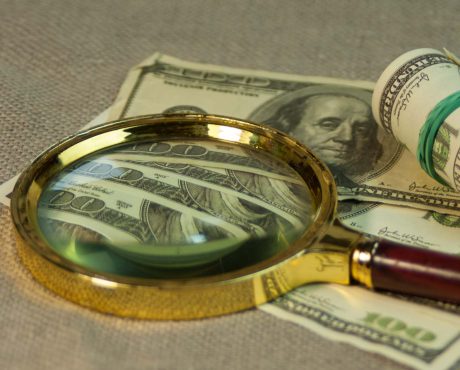One High-Yield Stock to Look at More Closely
At first glance, Fidus Investment Corp (NASDAQ:FDUS) doesn’t seem like the most solid dividend payer. But ignoring it could be a mistake, especially for investors who are seeking an oversized yield.
Fidus Investment is a business development company (BDC) that provides customized debt and equity financing solutions to lower-middle-market businesses in the U.S. To be more specific, the BDC targets firms with annual revenues between $10.0 and $150.0 million and annual earnings before interest, taxes, depreciation, and amortization (EBITDA) of $3.0 to $30.0 million. (Source: “Investor Presentation,” Fidus Investment Corp, last accessed April 6, 2021.)
For a company to qualify—and maintain its status—as a BDC, it must return at least 90% of its profits to investors through dividends. In return, BDCs don’t have to pay income tax at the corporate level. This pass-through structure allows BDCs to offer more generous dividend policies than most other types of companies. Indeed, FDUS stock has been a high-yield stock for quite some time.
But we also know that high-yield stocks aren’t known for their dividend safety. For instance, in light of the COVID-19 pandemic, Fidus Investment’s board of directors reduced the company’s quarterly dividend rate from $0.39 per share to $0.30 per share in April 2020. (Source: “Dividend History,” Fidus Investment Corp, last accessed April 6, 2021.)
While dividend cuts weren’t uncommon at that time, a lower payout certainly wasn’t good news for income investors.
Fortunately, that cut was all the BDC needed to get things back in order. In the second quarter of 2020, Fidus Investment Corp generated $0.37 per share in adjusted net investment income (NII), which was in excess of its $0.30-per-share quarterly dividend payment.
In the third quarter, its adjusted NII grew to $0.40 per share. So again, Fidus Investment stock’s payout was covered.
Then things got even better. In the fourth quarter of 2020, the company not only paid the $0.30-per-share regular dividend, but also a supplemental dividend of $0.04 per share. That brought FDUS stock’s total payment to $0.34 per share.
And because Fidus Investment’s adjusted NII came in at $0.44 per share for the quarter, the company has once again outearned its payout—including both the regular and special dividend. (Source: “Fidus Investment Corporation Announces Fourth Quarter and Full Year 2020 Financial Results,” Fidus Investment Corporation, February 25, 2021.)
The best part is, for the first quarter of 2021, the company paid a base dividend of $0.31 per share and a supplemental dividend of $0.07 per share. In other words, Fidus Investment not only raised its regular dividend, but also paid a higher special dividend.
At the time of this writing, Fidus Investment stock trades at $15.75 per share, so its regular quarterly dividend of $0.31 per share translates to an annual yield of 7.9%.
In today’s low-yield environment, 7.9% is certainly an attractive percentage, but keep in mind that this calculation only takes into account the regular dividend, not the supplemental dividend.
Of course, special dividends don’t always recur. However, note what the company’s chairman and chief executive officer, Edward Ross, said in the latest earnings conference call: “As a result of the steady improvement in the overall health of the portfolio since then, the Board has increased the base quarterly dividend by $0.01 to $0.31 per share and implemented a supplemental quarterly dividend for 2021 equal to 50% of the surplus in adjusted NII over the base dividend for the prior quarter. This formula results in a surplus of $0.14 per share from Q4, generating a first quarter supplemental dividend of $0.07 per share.” (Source: “Fidus Investment Corporation (FDUS) CEO Ed Ross on Q4 2020 Results – Earnings Call Transcript,” Seeking Alpha, February 26, 2021.)
In other words, FDUS stock’s payout included two portions: a base portion, which is the regular dividend, and a variable portion, which is the supplemental dividend based on adjusted NII. If business goes well and the company keeps following this flexible distribution model, more supplemental payouts could be on the way.
Lastly, as of December 31, 2020, Fidus Investment also had spillover income—taxable income in excess of distributions—of $22.0 million, or $0.90 per share. The company said that it likes the idea of having a high spillover position “for rainy day reasons.” Given the still-uncertain economic environment, I’d say that having a cushion of spillover income is good for a BDC. (Source: Ibid.)
Bottom Line on Fidus Investment Corp
Put it all together and it’s easy to see why Fidus Investment stock deserves the attention of yield-seeking investors.
FDUS stock’s base dividend is now well covered and translates to a more-than-decent yield. And if things go well, the potential for more supplemental dividends means investors could earn a higher yield from Fidus Investment Corp than what the official number suggests.
